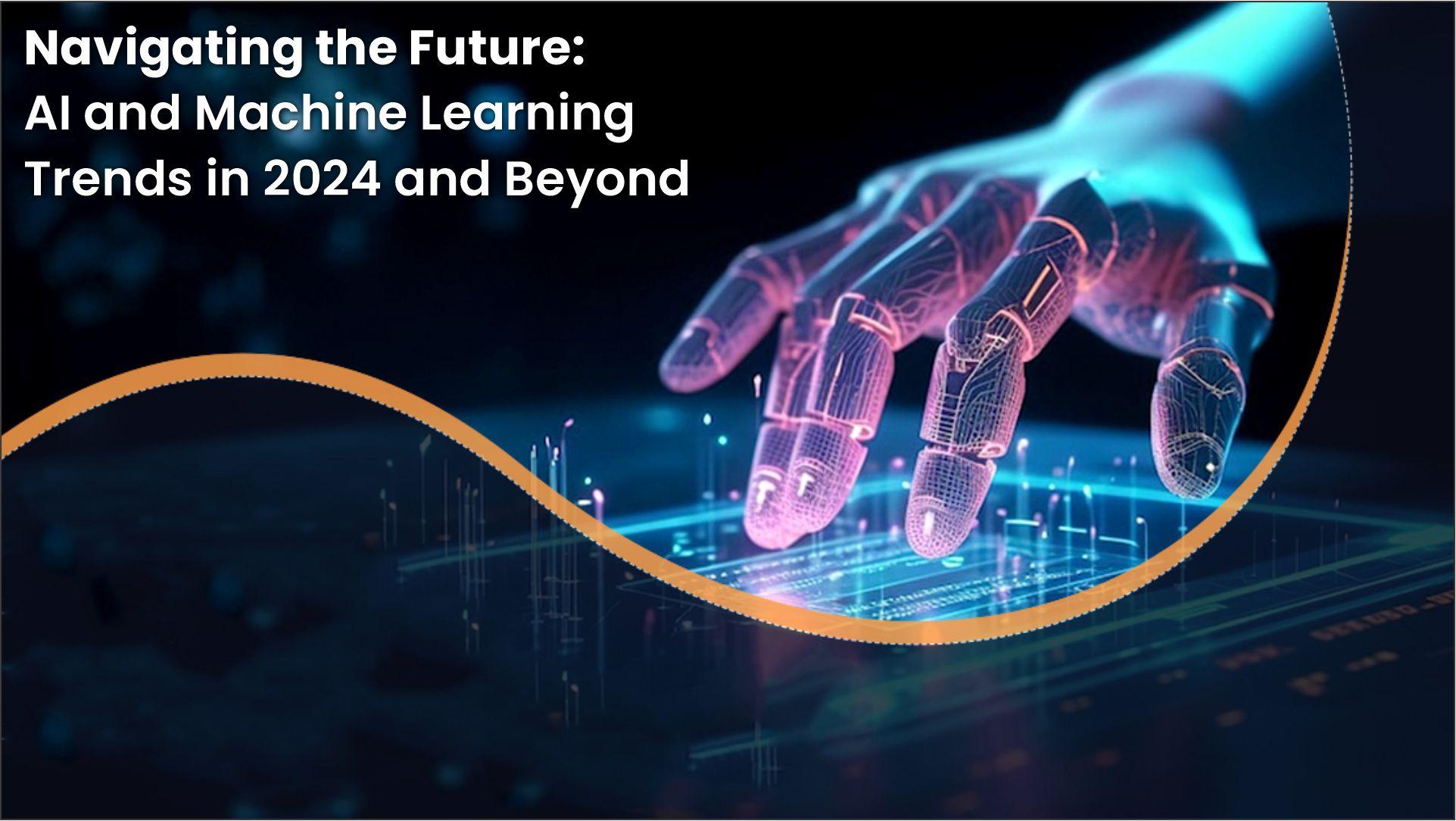News
Read the Montek Today
Explore the news article about technology,
Digital Marketing and global staffing.
Navigating the Future: AI and Machine Learning Trends in 2024 and Beyond

In the rapidly evolving landscape of artificial intelligence (AI) and machine learning (ML), innovation, and disruption are constants. As we look ahead to 2024 and beyond, AI and ML technologies continue to reshape industries, drive business transformation, and unlock new opportunities for innovation and growth. This comprehensive news piece explores the latest trends, advancements, and predictions in AI and ML for 2024 and 2025, offering insights into how these technologies are poised to impact various sectors and shape the future of work, society, and technology.
1. Continued Growth in AI Adoption Across Industries
In 2024 and beyond, we anticipate a continued surge in AI adoption across industries as businesses recognize the transformative potential of AI-driven insights, automation, and decision-making. From healthcare and finance to manufacturing and retail, organizations leverage AI and ML algorithms to streamline operations, enhance customer experiences, and gain a competitive edge in the marketplace.
Moreover, as AI technologies mature and become more accessible, businesses of all sizes and sectors are embracing AI-powered solutions to solve complex challenges, optimize processes, and drive innovation. Whether it's predictive analytics, natural language processing (NLP), or computer vision, AI is becoming an indispensable tool for businesses seeking to unlock new efficiencies and drive value in an increasingly digital and data-driven world.
2. Ethical AI and Responsible Innovation
As AI technologies become more pervasive and impactful, the importance of ethical AI and responsible innovation comes into sharper focus in 2024 and beyond. Organizations recognize the need to prioritize ethical considerations such as fairness, transparency, and accountability in AI development and deployment to mitigate risks, safeguard against bias, and ensure that AI technologies serve the greater good.
Moreover, regulatory bodies and industry organizations are stepping up efforts to establish guidelines, standards, and best practices for ethical AI and responsible innovation. From AI ethics committees and regulatory frameworks to AI impact assessments and transparency reports, stakeholders collaborate to foster a culture of responsible AI governance and ensure that AI technologies align with societal values and ethical principles.
3. Advancements in AI-Driven Healthcare
In the field of healthcare, AI and ML technologies hold immense promise for revolutionizing patient care, diagnostics, and drug discovery in 2024 and beyond. From AI-powered medical imaging and diagnostics to predictive analytics and personalized medicine, AI-driven innovations enable healthcare providers to deliver more precise, efficient, and patient-centered care.
Moreover, AI accelerates drug discovery and development processes, facilitating the identification of novel therapies, precision medicine approaches, and targeted interventions for complex diseases. As healthcare systems grapple with unprecedented challenges such as the COVID-19 pandemic and rising healthcare costs, AI emerges as a transformative force for driving innovation, improving outcomes, and enhancing the resilience of healthcare infrastructure worldwide.
4. Democratization of AI and ML
In 2024 and beyond, we witness the democratization of AI and ML technologies, as platforms, tools, and resources become more accessible and user-friendly for developers, businesses, and enthusiasts. Cloud-based AI services, low-code ML platforms, and pre-trained AI models empower individuals and organizations to build, deploy, and scale AI-powered solutions with ease and efficiency.
Moreover, educational initiatives, online courses, and community-driven resources proliferate, enabling individuals to acquire AI and ML skills and embark on careers in data science, AI engineering, and machine learning. By democratizing access to AI and ML technologies, stakeholders foster a culture of innovation, inclusion, and diversity, unlocking new opportunities for talent development, entrepreneurship, and social impact worldwide.
5. The Rise of Explainable AI and Model Interpretability
Explainable AI (XAI) and model interpretability emerge as critical priorities in 2024 and beyond, as organizations seek to enhance trust, transparency, and understanding of AI-driven decisions and predictions. XAI techniques enable stakeholders to interpret, explain, and validate AI models' outputs, ensuring that AI-driven decisions are understandable, trustworthy, and aligned with human judgment.
Moreover, XAI fosters collaboration between AI systems and human experts, enabling stakeholders to leverage AI technologies as decision support tools and augment their expertise with AI-driven insights. By prioritizing explainability and model interpretability, organizations enhance accountability, reduce risks, and foster greater confidence in AI technologies' capabilities and limitations.
Conclusion
As we look ahead to 2024 and beyond, the future of AI and machine learning is characterized by innovation, opportunity, and responsible stewardship. From continued AI adoption across industries to the prioritization of ethical AI and responsible innovation, stakeholders navigate a complex landscape of opportunities and challenges in harnessing the transformative power of AI and ML technologies.
By embracing trends such as democratization of AI, advancements in healthcare, and the rise of explainable AI, organizations can unlock new possibilities for innovation, collaboration, and societal impact in the digital age. As AI and ML technologies continue to evolve and shape the future of work, society, and technology, stakeholders must remain vigilant, adaptable, and committed to harnessing AI's potential for the greater good


Date : 2024-05-23 | By : Montek | Category: AI-ML